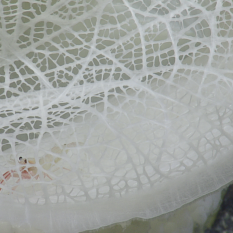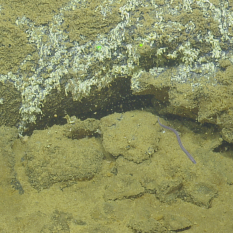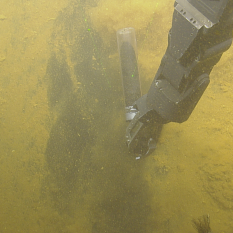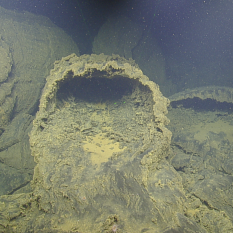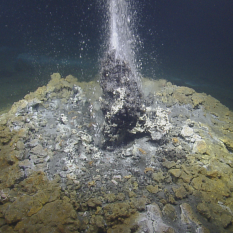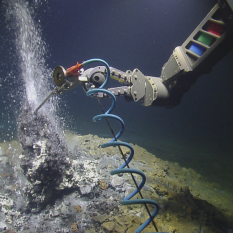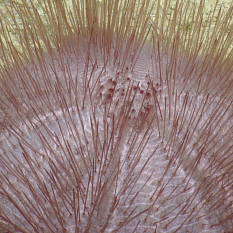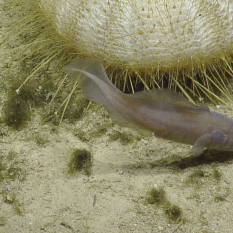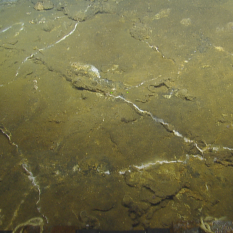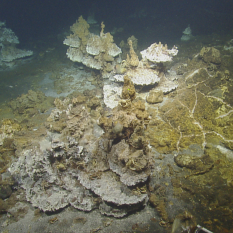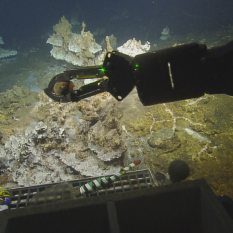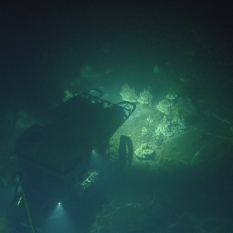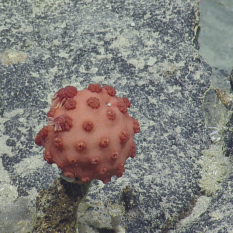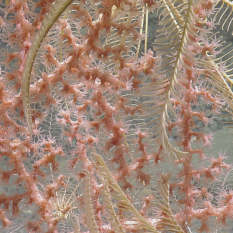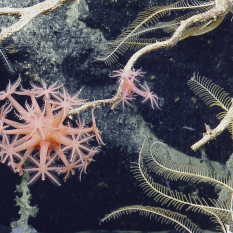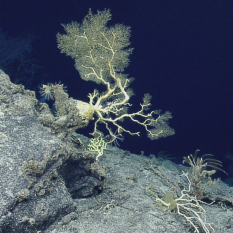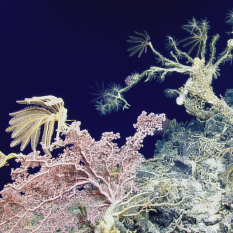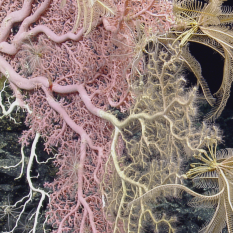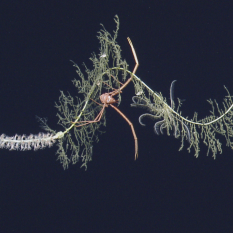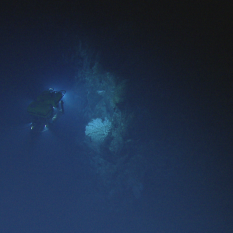Mesophotic Marvels of American Samoa
Off the coasts of the islands of Tutuila, Ta’u, Ofu-Olosega in American Samoa lies an underwater world that few human eyes have beheld. Home to thousands of species of deep-water corals, sponges, fishes, and invertebrates, the waters in and around the National Marine Sanctuary of American Samoa represent one of the most biologically diverse regions in the world. During the Nautilus’ time in the sanctuary, researchers aboard the vessel acquired baseline information on deep-sea and mesophotic habitats by collecting samples that represent rare and potentially new marine organisms in these hard-to-reach ecosystems.
No light can penetrate beyond the mesophotic zone occurring at depths 150 meters and deeper. Here, organisms feature a wide variety of special adaptations that help them successfully survive in some of the most remote stretches of the planet.
Album curated by Science Communication Fellows Madison Dapcevich and Valeria Tamayo Cañadas.

National Marine Sanctuary of American Samoa
The main objective of this expedition is to acquire baseline information on deep-sea and mesophotic habitat in American Samoa, with a special focus on the National Marine Sanctuary of American Samoa (NMSAS). Within deep-sea habitats, seafloor geology and biological communities will be documented and potentially new species of deep-sea coral and subsamples of rocks will be collected.
